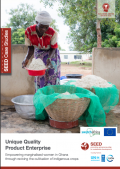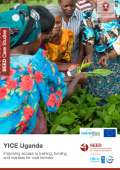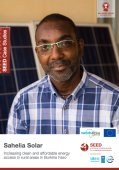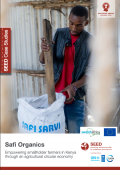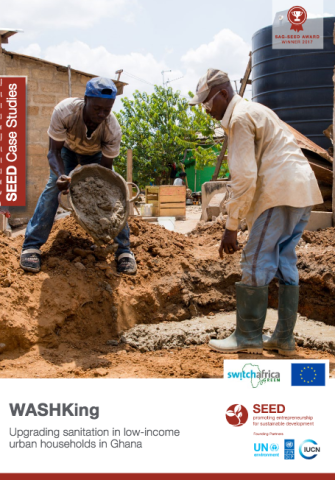
Since its establishment in 2016, the eco-inclusive enterprise WASHKing aims to eradicate open defecation and poor sanitation in low-income urban communities in Accra, Ghana. To achieve this, WASHKing designs, supplies and installs affordable, eco-friendly biodigester toilets in poor urban households. A biodigester toilet is a simple, low- cost solution to treat human waste using microbial processes to break down the waste.
WASHKing serves primarily low-income urban households and institutions with poor or no access to toilet facilities. The toilets require little maintenance, need minimal water and use a locally produced enzyme to treat the solid waste. In collaboration with local partners, WASHKing helps low-income customers to receive microloans that are paid back in instalments. The enterprise also provides employment and training for local artisans to design and construct the toilets using regionally available materials. The enterprise’s flexible payment terms, trainings on hygiene and after-sales services ensure customer satisfaction.
The new case study series that emanated from the SWITCH Africa Green project "Promoting Eco-Entrepreneurship in Africa", implemented by SEED, showcases how innovative eco-inclusive start-up enterprises in Africa shape sustainable development on the ground. The individual case studies are enhanced with short multimedia features that showcase the innovation, the partnership, the support from SEED and the overall impact of each enterprise.

